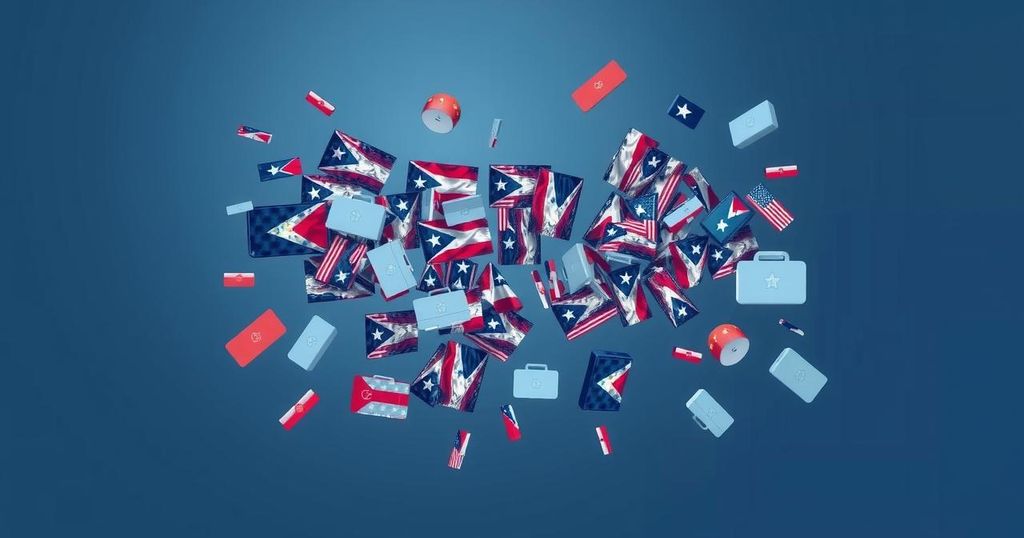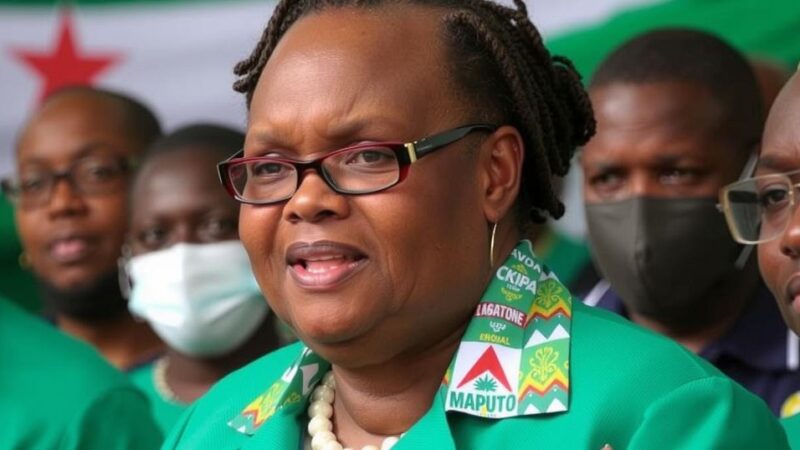Puerto Rico’s general elections hold historic significance, with two primary gubernatorial candidates poised to challenge decades of political dominance. Jenniffer González aims for a third consecutive term for her party, while Juan Dalmau seeks to break the two-party stranglehold. Voter turnout amidst weather challenges highlights calls for change, and a referendum on political status is also on the ballot. Delayed results are expected as voters engage actively in shaping the island’s future.
Puerto Rico is currently undergoing significant general elections that hold the potential to reshape the island’s political landscape. With two leading gubernatorial candidates, Jenniffer González from the pro-statehood New Progressive Party and Juan Dalmau representing the Puerto Rican Independence Party and Citizen Victory Movement, the outcome is momentous. González’s victory would mark the first time her party has achieved three consecutive terms, while Dalmau’s success would represent a breakthrough for parties outside the traditional duopoly that has prevailed for decades. Long lines of voters braving heavy rains highlight the public’s desire for change amidst longstanding issues such as power outages and housing shortages. Furthermore, a nonbinding referendum on Puerto Rico’s political status is on the ballot, offering options for statehood, independence, and free association. As over 50 nations prepare for elections, the results in Puerto Rico are particularly significant. Prominent cultural figures, including the reggaetón artist Bad Bunny, have engaged in political activism, emphasizing the urgent need for reforms. The elections have been characterized by significant voter engagement, especially from younger demographics aiming to challenge the entrenched political system. Delayed results are anticipated due to the volume of early and absentee votes, further adding complexity to this critical electoral moment. Overall, this election embodies a potential turning point in Puerto Rico’s governance, particularly in the context of its unresolved status as a U.S. territory and its citizens’ aspirations for equality and representation.
The general elections in Puerto Rico are noteworthy not only for their immediate political consequences but also for the changing dynamics within the electorate. Historically, the New Progressive Party and the Popular Democratic Party have dominated Puerto Rican politics, often overshadowing smaller parties. Recent trends indicate a growing discontent with bipartisan politics, stemming from economic challenges and governance issues, prompting voters to explore alternatives, including independent candidates. Additionally, the inclusion of a referendum on Puerto Rico’s political future serves as a crucial element in this election, highlighting the ongoing debate regarding the island’s status as a U.S. territory.
In conclusion, Puerto Rico’s current elections represent a critical juncture in its political history, with the potential to reshape long-standing party dynamics and address pressing social issues. The emergence of new political voices and the engagement of citizens demonstrate a pivotal shift towards more inclusive governance. The anticipated results and the eventual decision on the referendum may significantly influence Puerto Rico’s future trajectory and its relationship with the United States.
Original Source: apnews.com







